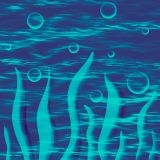In this article:
What is a Marine Science Degree?
A marine science degree is all about studying the oceans, marine life, and the environmental processes that shape them. Students learn about marine biology, oceanography, and the chemistry of oceans, focusing on how living organisms and the environment interact. Topics include marine biodiversity, conservation, and how human activities affect marine ecosystems.
The program includes both classroom learning and hands-on experiences. Students often take part in lab work, field studies, and marine research trips, where they can observe marine species, study ocean currents, and examine pollution. This hands-on approach helps them understand the ocean and its life forms in a practical way.
Marine Science vs Marine Biology
- Marine science is a broader field that encompasses the study of the ocean’s physical, chemical, geological, and biological processes. It includes disciplines such as oceanography, marine chemistry, marine geology, and marine biology. Marine science explores everything from ocean currents, climate change effects, and the chemistry of seawater to the ecosystems that exist in marine environments.
- Marine biology, on the other hand, is a specific branch within marine science that focuses on the study of marine organisms and their interactions with their environments. It looks at marine life, such as fish, coral reefs, and marine mammals, and how they function, reproduce, and survive in their ecosystems.
Program Options
Program options for a marine science degree typically include:
- Associate Degree in Marine Science: This program introduces students to the basics of marine ecosystems, oceanography, and marine biology. It’s often used as a stepping stone to more advanced study or entry-level jobs like research assistant roles.
- Bachelor’s Degree in Marine Science: A more in-depth program that covers a broad range of topics such as marine biology, oceanography, and environmental science. Students gain a strong foundation in the natural sciences, often paired with fieldwork and lab experience. This degree prepares graduates for a variety of marine-related careers or further graduate studies.
- Master’s Degree in Marine Science: A more advanced program designed for specialization in areas like marine ecology, oceanography, or marine conservation. It often includes research projects or a thesis, leading to opportunities in research, academia, or higher-level positions in government and environmental organizations.
- Doctorate (PhD) in Marine Science: A research-focused degree aimed at those pursuing a career in academia, high-level research, or leadership roles in marine science. It typically requires extensive original research, a dissertation, and several years of study. Graduates often work as marine scientists or professors.
Skills You’ll Learn
Students pursuing a marine science degree develop a wide range of skills, including:
- Marine Ecosystem Understanding: Gain in-depth knowledge of marine ecosystems, including the biology, chemistry, and geology of oceans, coasts, and marine life.
- Field Research Skills: Learn how to conduct field studies, collect and analyze data, and use scientific equipment to study marine environments, such as underwater ecosystems, ocean currents, and water chemistry.
- Laboratory Techniques: Develop skills in laboratory research, including the use of microscopes, water testing equipment, and computer modeling to study marine species and environmental factors.
- Data Analysis: Master statistical analysis and data interpretation, often using specialized software to analyze oceanographic and biological data.
- Environmental Problem-Solving: Learn to assess and develop solutions to environmental challenges such as pollution, climate change, and marine conservation.
- Scientific Communication: Enhance the ability to communicate complex scientific ideas through reports, presentations, and publications, essential for sharing research findings.
What Can You Do with a Marine Science Degree?
With a marine science degree, you can pursue a variety of careers, including:
- Marine Biologist: Study marine organisms, their behaviors, and how they interact with their environment. This role often involves fieldwork, lab research, and conservation efforts.
- Oceanographer: Explore the physical and chemical properties of oceans, such as currents, tides, and water composition. This career focuses on understanding ocean systems and their impact on the global climate.
- Marine Fisheries Biologist: Studies fish populations and their habitats to promote sustainable fishing practices. They work with government agencies or fisheries to manage and protect aquatic resources.
- Aquaculturist: Manages and operates fish farms, breeding marine species for commercial purposes. They ensure optimal conditions for fish growth, helping meet the demand for seafood in a sustainable way.
- Ichthyologist: Focuses on the study of fish species, their behavior, and ecosystems. Their research contributes to understanding fish biology and protecting endangered fish populations.
- Environmental Consultant: Advises on environmental regulations and policies related to marine ecosystems. They work with businesses and governments to ensure that activities comply with environmental laws.

